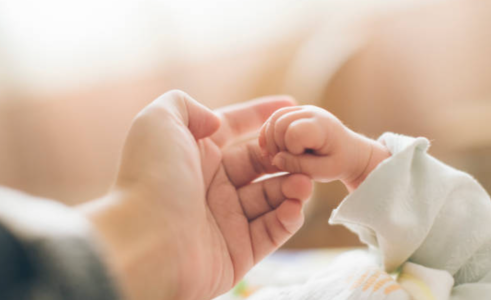New donor register offers more details, making the truth easier to uncover
By
Gian T
- Replies 3
A new initiative is reshaping how donor-conceived individuals access information about their origins.
While some welcome the transparency, others question the implications of uncovering long-held secrets.
The shift has sparked emotional discussions, challenging long-standing practices and raising complex ethical and personal concerns.
According to the state government, the register already boasts entries for over 2,000 historical donor conceptions.
This is a monumental shift, especially considering that donors who provided their genetic material before 2004 were assured anonymity—a promise that has now been legally overridden.
Biological parents identified in donor conception treatments will be contacted by SA Health and given a 90-day notice before their information is published on the register.
They can also express their contact preferences and add any additional information they wish to share.
Health Minister Chris Picton has described removing secrecy provisions as a 'big step.'
'This is a core sense of who people are, and everybody should have the right to know who they are and the background of their information,' he said.
'We think that this is critically important, not just for people to really establish their identity but also for critical health information.'
One such advocate is Damian Adams, a 50-year-old who was conceived via anonymous donor sperm.
'I did suffer from not knowing my family, I did suffer from not knowing my heritage, my place in the world and where I come from.' he said.
Adams' journey to discover his biological family was challenging but ultimately successful.
He met his biological father in 2019, an encounter that underscored the profound impact of genetic connections.
Adams now hopes that the new register will facilitate easier and earlier reunions for other donor-conceived individuals and their biological families.
However, the new system has its detractors. Critics, including former sperm donor Dr Greg Otto, have raised concerns about privacy.
Dr Otto, who donated in the 1970s, believes that while sharing information about genetic health risks is reasonable, any further disclosure infringes on the donors' privacy.
'It's a simple matter of privacy—if I want to see these people, I'd go and find them if I did, but I have no inclination at all to know who they were, what they did, what they became or anything else,' he said.
He fears that the new legislation could deter future donors, potentially impacting the availability of donor sperm and eggs.
Despite these concerns, the register is designed to respect individual preferences.
Donors, donor-conceived people aged 18 and older, and recipient parents can list their contact preferences, allowing them to connect or remain separate.
The state government also offers counselling through Relationships Australia to support affected families during this transition.
Accessing the register requires identity verification through the Australian government's digital ID system, and donor-conceived individuals must consent to release their information.
It's a development that could have far-reaching consequences, not just for those directly involved but for the broader conversation about reproductive technology and the rights of individuals to know their biological origins.
 How do you feel about the new donor conception register? Do you believe it strikes the right balance between the right to know and the right to privacy? Your insights are valuable to us, and we look forward to a robust discussion.
How do you feel about the new donor conception register? Do you believe it strikes the right balance between the right to know and the right to privacy? Your insights are valuable to us, and we look forward to a robust discussion.
While some welcome the transparency, others question the implications of uncovering long-held secrets.
The shift has sparked emotional discussions, challenging long-standing practices and raising complex ethical and personal concerns.
According to the state government, the register already boasts entries for over 2,000 historical donor conceptions.
This is a monumental shift, especially considering that donors who provided their genetic material before 2004 were assured anonymity—a promise that has now been legally overridden.
Biological parents identified in donor conception treatments will be contacted by SA Health and given a 90-day notice before their information is published on the register.
They can also express their contact preferences and add any additional information they wish to share.
Health Minister Chris Picton has described removing secrecy provisions as a 'big step.'
'This is a core sense of who people are, and everybody should have the right to know who they are and the background of their information,' he said.
'We think that this is critically important, not just for people to really establish their identity but also for critical health information.'
One such advocate is Damian Adams, a 50-year-old who was conceived via anonymous donor sperm.
'I did suffer from not knowing my family, I did suffer from not knowing my heritage, my place in the world and where I come from.' he said.
Adams' journey to discover his biological family was challenging but ultimately successful.
He met his biological father in 2019, an encounter that underscored the profound impact of genetic connections.
Adams now hopes that the new register will facilitate easier and earlier reunions for other donor-conceived individuals and their biological families.
However, the new system has its detractors. Critics, including former sperm donor Dr Greg Otto, have raised concerns about privacy.
Dr Otto, who donated in the 1970s, believes that while sharing information about genetic health risks is reasonable, any further disclosure infringes on the donors' privacy.
'It's a simple matter of privacy—if I want to see these people, I'd go and find them if I did, but I have no inclination at all to know who they were, what they did, what they became or anything else,' he said.
He fears that the new legislation could deter future donors, potentially impacting the availability of donor sperm and eggs.
Despite these concerns, the register is designed to respect individual preferences.
Donors, donor-conceived people aged 18 and older, and recipient parents can list their contact preferences, allowing them to connect or remain separate.
The state government also offers counselling through Relationships Australia to support affected families during this transition.
Accessing the register requires identity verification through the Australian government's digital ID system, and donor-conceived individuals must consent to release their information.
As South Australia takes this bold step towards transparency, it raises profound questions about the nature of identity, privacy, and the ethical implications of donor conception. It's a development that could have far-reaching consequences, not just for those directly involved but for the broader conversation about reproductive technology and the rights of individuals to know their biological origins.
Key Takeaways
- Donor-conceived individuals in South Australia can now access information about their biological parents through a new online register.
- The register is part of a move away from the historical culture of secrecy surrounding donor conception, with more than 2,000 cases already included.
- The law overriding previous guarantees of donor anonymity was passed last year, allowing for greater transparency and potential health benefits.
- Critics, including previous donors, have expressed concerns regarding privacy violations and the potential impact on future donations.







